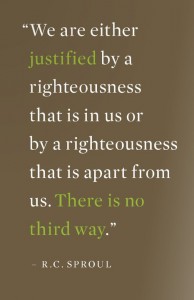 “Finally, brothers, pray for us, that the word of the Lord may speed ahead and be honored, as happened among you, and that we may be delivered from wicked and evil men. For not all have faith.” – 2 Thess 3: 1,2
“Finally, brothers, pray for us, that the word of the Lord may speed ahead and be honored, as happened among you, and that we may be delivered from wicked and evil men. For not all have faith.” – 2 Thess 3: 1,2
There are wicked people out there who will oppose the spread of the Gospel. Therefore we are called upon to pray for the word to be given free course to reach many people and to be honored when it does.
There is going to be opposition. Evil people with wicked intentions seek to thwart the Gospel from being heard, from whom, we need deliverance.
Why is that?
“For not all have faith” (2 Thess. 3:2).
Notice the clear words. This does NOT say that all men have faith but some fail to use or exercise it. No, it says not all have it. It is not in theirs. It is not found in them. Those who do possess genuine saving faith in Christ have received this faith as a gift. Not only is salvation God’s gift from start to finish but so is the faith that causes a person to trust Him (Acts 3:16; Ephesians 2:8, 9; Phil. 1:29, Heb 12:2).
Faith comes by the hearing of the word of God (Romans 10:17). Hearing God’s word is the way faith comes. The hearing of the word of God is the mechanism or the means God uses when He gives faith to someone – but not all who hear the word of God receive this precious gift. Some hear the word and refuse to believe it. Yet, some hear it, believe it and are saved.
Who receives it then?
Acts 13:48 tells us, “..and all who were ordained to eternal life believed.”
Jesus said these words to one group, “I told you, and you do not believe. The works that I do in my Father’s name bear witness about me, but you do not believe because you are not among my sheep.”
Did you catch that? Look at the text again and ask yourself, “What was the reason these people did not believe (according to Jesus)”?
The answer is clear: They did not believe because they were not His sheep.
Jesus DID NOT SAY that they were not His sheep because they did not believe, making the unbelief the cause of them not being sheep. No, it was their not being His sheep that was the root cause of their unbelief. He said “you do not believe because you are not My sheep.”
In contrast to this picture, Jesus then says, “My sheep hear my voice, and I know them, and they follow me. I give them eternal life, and they will never perish, and no one will snatch them out of my hand. My Father, who has given them to me, is greater than all, and no one is able to snatch them out of the Father’s hand. I and the Father are one.” (John 10:25-30)
Child of God, rejoice in your Savior for salvation is truly of the Lord. This trust you have in Him – yes, this trust in His goodness and in His word, even through fierce trials and storms, even through “many dangers, toils and snares” – this faith you have, is not your own doing. It is God’s gift given to you as one of His precious sheep. His sheep hear His voice, know Him and follow Him. All praise to the Great Shepherd of the sheep.
“If the faith whereby I have laid hold on Christ to be my Savior be altogether wrought in me by the Holy Ghost through grace, then I defy the devil to take away that which he never gave me or to crush that which Jehovah Himself created in me. I defy my free will to fling what it never brought to me. What God has given, created, introduced, and established in the heart, He will maintain there.” – C. H. Spurgeon
“No man can give himself faith, neither can he take away his unbelief.” – D. Martyn Lloyd-Jones

 “Be careful of not making a Saviour of faith. There is a danger – and it cannot be too vigilantly guarded against – of substituting the work of the Spirit for the work of Christ; this mistake it is that leads so many of God’s saints to look within, instead of without, themselves for the evidences of their calling and acceptance; and thus, too, so many are kept all their spiritual course walking in a state of bondage and fear, the great question never fully and fairly settled, or, in other words, never quite sure of their sonship. The work of Christ is a great and finished work; it is so glorious that it can admit of no comparison, so complete that it can allow of no addition, and so essential that it can give place to no substitution. Precious as is the work of the Holy Ghost in the heart, and essential as it is to the salvation of the soul, yet he who places it where the work of Jesus ought only to be, deranges the order of the covenant, closes up the legitimate source of evidence, and will assuredly bring distress and uncertainty into his soul. ‘Righteousness, peace, and joy’ are the fruit of a full belief in the Lord Jesus Christ; and he who looks for them away from the cross, will meet with disappointment: but they are found in Jesus. He who looks away from himself, from his vileness, guiltiness, emptiness, and poverty, fully and believingly unto Jesus, shall know what the forgiveness of sin is, and shall experience the love of God shed abroad in his heart.
“Be careful of not making a Saviour of faith. There is a danger – and it cannot be too vigilantly guarded against – of substituting the work of the Spirit for the work of Christ; this mistake it is that leads so many of God’s saints to look within, instead of without, themselves for the evidences of their calling and acceptance; and thus, too, so many are kept all their spiritual course walking in a state of bondage and fear, the great question never fully and fairly settled, or, in other words, never quite sure of their sonship. The work of Christ is a great and finished work; it is so glorious that it can admit of no comparison, so complete that it can allow of no addition, and so essential that it can give place to no substitution. Precious as is the work of the Holy Ghost in the heart, and essential as it is to the salvation of the soul, yet he who places it where the work of Jesus ought only to be, deranges the order of the covenant, closes up the legitimate source of evidence, and will assuredly bring distress and uncertainty into his soul. ‘Righteousness, peace, and joy’ are the fruit of a full belief in the Lord Jesus Christ; and he who looks for them away from the cross, will meet with disappointment: but they are found in Jesus. He who looks away from himself, from his vileness, guiltiness, emptiness, and poverty, fully and believingly unto Jesus, shall know what the forgiveness of sin is, and shall experience the love of God shed abroad in his heart. “In order for [Jesus] to qualify as our Redeemer, it was not enough for Him simply to go to the cross and be crucified. If Jesus had only paid for our sins, He would have succeeded only in taking us back to square one. We would no longer be guilty, but we still would have absolutely no righteousness to bring before God.”
“In order for [Jesus] to qualify as our Redeemer, it was not enough for Him simply to go to the cross and be crucified. If Jesus had only paid for our sins, He would have succeeded only in taking us back to square one. We would no longer be guilty, but we still would have absolutely no righteousness to bring before God.” At the Council of Trent in the 16th century, the Roman Catholic Church placed its eternal and irrevocable curse on the Gospel, announcing it as actually heretical. I am certain that in the hearts and minds of the delegates at the Council, this was never intended – not even for a moment – but that is in fact what happened.
At the Council of Trent in the 16th century, the Roman Catholic Church placed its eternal and irrevocable curse on the Gospel, announcing it as actually heretical. I am certain that in the hearts and minds of the delegates at the Council, this was never intended – not even for a moment – but that is in fact what happened.